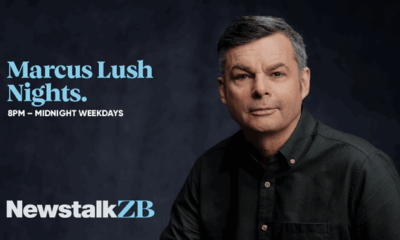Health
New Zealand’s Tobacco Industry Ranking Falls to 53rd Worldwide

New Zealand has experienced a dramatic decline in its ranking regarding tobacco industry interference, falling from second place in 2023 to a dismal 53rd in the 2025 Global Tobacco Industry Interference Index. This assessment, compiled by the Global Center for Good Governance in Tobacco Control, evaluates the influence of the tobacco sector across 100 countries and highlights significant shifts in policy and regulation.
Among the primary factors contributing to New Zealand’s steep fall are the repeal of the smokefree generation laws and a controversial tax break for tobacco giant Philip Morris. Additionally, the movement of personnel between government roles and the lobbying industry has raised concerns about the integrity of policy-making processes. The advocacy group Vape-Free Kids described the country’s drop of 51 places as “staggering,” labeling it an “international disgrace” for the government.
Charyl Robinson, co-founder of Vape-Free Kids, criticized the government’s handling of tobacco regulation, stating, “New Zealand has become an international embarrassment and an example of how quickly a government can be corrupted by the tobacco industry.”
In contrast, Associate Health Minister Casey Costello dismissed the index as “ridiculous,” arguing that smoking rates should be the primary focus. She pointed out that New Zealand’s smoking rate has halved since 2015, currently standing at 6.9 percent, one of the lowest rates globally. Costello emphasized that the index does not accurately reflect the country’s success in reducing smoking prevalence, citing Brunei and France as examples where higher smoking rates contradict their higher rankings.
In 2024, the New Zealand government made significant changes by repealing laws that would have drastically reduced the number of tobacco retailers, limited nicotine levels in cigarettes, and prohibited sales to individuals born after 2009. This shift has drawn criticism from various public health advocates and organizations. The report notes that New Zealand and Kazakhstan are among the countries that have reduced taxes on heated tobacco products (HTPs), while Ecuador, Georgia, Madagascar, Türkiye, and Uganda have also extended tax breaks to the tobacco industry.
Rachael Neumann, head of advocacy and public affairs at the New Zealand Cancer Society, highlighted the detrimental impact of increased tobacco industry interference in policy-making. She explained that the report identified a “high level of industry participation” in the formulation of tobacco policies and noted “a whole range of unnecessary interactions” between the government and the tobacco sector.
Neumann stated, “Every year, even now, 5,000 people die from tobacco and tobacco-related diseases. We know that tobacco industry interference and the repeal of these laws lead to more smoking, more addiction, and we’re deeply concerned because this leads to more cancer.”
Despite these criticisms, Costello maintained that protections against tobacco industry interference have not weakened in recent years. She stated that New Zealand continues to adhere to international protocols regarding government engagement with the tobacco sector. Costello asserted that the tobacco industry did not influence the country’s smokefree and health policies.
The Global Tobacco Industry Interference Index also pointed out the lack of regulation surrounding lobbying in New Zealand and the unclear nature of relationships between the tobacco industry and government officials. It noted that two communications staff from Philip Morris previously held senior roles with the NZ First political party. A leaked document from Philip Morris suggested targeting political parties, including NZ First and the Māori Party, to secure favorable regulations for HTPs.
As the report illustrates, New Zealand has recorded the most significant decline in industry interference, raising alarms about the implications for public health and tobacco control policies. In stark contrast, countries like Uruguay, Maldives, and Palau have been recognized as the most improved nations in the index, reflecting a commitment to stronger tobacco control measures.
In response to the findings, Labour leader Chris Hipkins indicated his party’s intention to repeal the recent tobacco tax cuts, which he described as benefiting tobacco companies based on “very questionable advice.” He stated, “It’s one tobacco company that, by and large, has got the vast bulk of the benefit from that, and that is going to change.”
As New Zealand navigates its position in global tobacco regulation, the implications of this report are significant, not only for public health but also for the integrity of the legislative process in the face of industry influence. The ongoing debate highlights the critical balance between public health initiatives and the pressures exerted by powerful corporate entities within the tobacco sector.
-

 Top Stories1 month ago
Top Stories1 month agoCommunity Mourns Teens Lost in Mount Maunganui Landslide
-

 Entertainment6 months ago
Entertainment6 months agoTributes Pour In for Lachlan Rofe, Reality Star, Dead at 47
-

 World3 months ago
World3 months agoPrivate Funeral Held for Dean Field and His Three Children
-

 Top Stories3 months ago
Top Stories3 months agoFuneral Planned for Field Siblings After Tragic House Fire
-

 Sports6 months ago
Sports6 months agoNetball New Zealand Stands Down Dame Noeline Taurua for Series
-

 Entertainment1 month ago
Entertainment1 month agoJulian Dennison Ties the Knot with Christian Baledrokadroka in New Zealand
-

 Entertainment5 months ago
Entertainment5 months agoNew ‘Maverick’ Chaser Joins Beat the Chasers Season Finale
-

 Sports6 months ago
Sports6 months agoSilver Ferns Legend Laura Langman Criticizes Team’s Attitude
-

 Sports4 months ago
Sports4 months agoEli Katoa Rushed to Hospital After Sideline Incident During Match
-

 Sports4 months ago
Sports4 months agoAll Blacks Star Damian McKenzie and Partner Announce Baby News
-

 Sports3 months ago
Sports3 months agoNathan Williamson’s Condition Improves Following Race Fall
-

 Politics5 months ago
Politics5 months agoNetball NZ Calls for Respect Amid Dame Taurua’s Standoff















